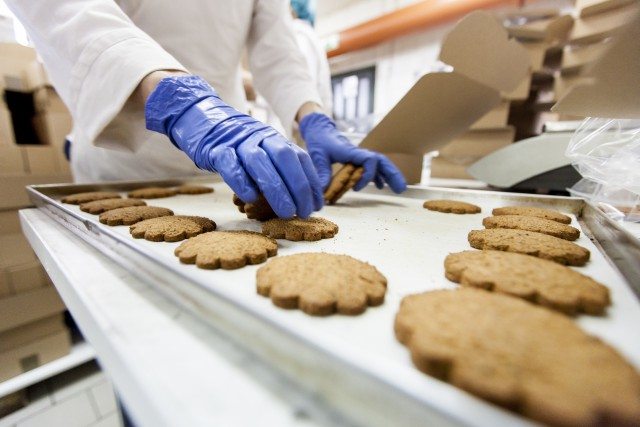The outsourced contract catering industry in the UK involves providing meals in a wide variety of places including businesses, industry, schools, universities, leisure centers, hospitals, prisons and military sites.
The industry has been impacted by the economic downturn with the 2009 fall in employment having led to fewer people in the workplace requiring to be fed.
Changes in the structure of the labor market, with increased part-time and flexible working, mean that the more recent recovery in levels of employment has not automatically led to a similar recovery in workplace catering.
Outsourcing has long been an important driver of the market, although its level, and hence potential impact on market growth, varies between different segments.
Industry issues
Compared to many support services, the provision of meals offers greater scope for differentiation and has impact on the overall satisfaction of employees.
This helps to elevate the purchasing decision from being one purely driven by price and makes customers reluctant to terminate a contractor relationship while satisfaction levels are high amongst users of the service.
While compared to other catering segments it is less volatile, benefits from a population of captive end-customers to serve and, as it operates from client premises, has much lower capital intensity.
Contract catering cost structure
The success in the industry requires effective management of labor and food, which account for the bulk of operators’ costs.
As employers of large numbers of relatively low-paid workers, contract caterers face the challenge of recruitment, training, motivation and retention of their workforce.
This is critical as incidences of service failure are often the triggers of a decision to review a contract.
Caterers generally have some exposure to food price volatility.
It is customary to negotiate contract terms which pass on an element of this risk to the client however, in most cases, part of the risk does remain with the caterer and catering margins are likely to be impacted by above-inflation increases in food prices, as has been the case in recent years.
There is evidence of convergence between contract catering and facilities management (FM) with many of the leading catering companies offering additional services to enable them to increase revenue per contract.
The views of customers split between those who are keen on the idea of contract catering being part of an FM service bundle, to obtain cost and efficiency benefits, and those who see value in keeping it separate.
Three-year contracts are typical in the industry, usually with options to extend but increasingly, the bigger players are announcing five and even seven-year contracts.
These longer contracts are often awarded in situations where the caterer is required to invest to improve the premises or when the customer has a long and successful relationship with the caterer and can trust them to continue offering the same level of service.
Retention and renewal rates are generally high leading to long-term supply relationships.
For example, Sodexo renewal rates across its global business were 95% in 2012 and 2013.
The quality of service is important in preventing poor performance from triggering a review and hence the risk of loss of a contract.
Competitive Landscape
The largest companies in the market are Compass and Sodexo.
The two companies have expanded their service offer to include a wide range of non-catering services and are now global companies with presence in a large number of countries, many of which are less mature contract catering markets than the UK and hence offer them more attractive growth prospects.
Sodexo derives an increasing proportion of its UK revenue from a range of 140 other services.
While, as it recently stated, its food service volumes continue to decline as a result of employee downsizing and cost-saving measures taken by its clients.
Compass reports that over a quarter of its UK revenue (around 10% of its global revenue) derives from non-catering activities.
The two leaders have lost significant market share in recent years to a series of smaller rivals.
These include specialists, such as Baxter Storey – which has continued to achieve year-on-year growth driven by a series of new contract wins – and facilities management groups.
These include MITIE – which has had a series of successes in selling contract catering as part of its bundled service offer and has, as result, been able to double its revenue in the last two years – and Servest and Interserve, which both stepped-up their presence in contract catering following their recent acquisitions of Initial and 7-Day Catering respectively.
There are also several smaller, independent operators, several of which have been recent start-ups, suggesting that entry barriers to the industry are relatively low.
Prices have increased.
Above-inflation increases in food costs have been passed on to customers, who largely accept this and expect it to continue in future.
As a result, contract catering margins have been stable despite the economic downturn and rising food costs, with most companies reporting an improvement in their latest financial year.
Market outlook
UK’s contract catering market is driven by a wide range of factors which makes it challenging to predict how it might grow in the future.
Some factors appear positive, such as the rise in the number of people in employment as the economy recovers, the increase in numbers of school children as the effects of higher recent birth rates feed through, and the increasing number of older people requiring residential care as the population as a whole ages.
However, others are less positive.
For example, changes in the nature of work with more part-time workers and home-based workers who do not require a meal at their workplace, falls in university student numbers following fee increases and tighter immigration controls and the trend for shorter hospital stays all have a negative impact on demand for catering.
Story by Frank Proud from Apex Insight










